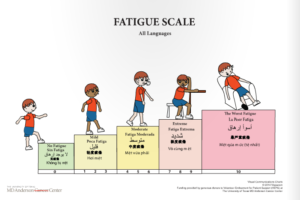The Kaiser Family Foundation (KFF) has published its April 2012 Health Tracking Poll that assesses the public’s knowledge and attitudes about the Affordable Care Act. This is the first KFF poll to appear since the significant publicity surrounding the Supreme Court oral arguments held the prior month.
The Kaiser Family Foundation (KFF) has published its April 2012 Health Tracking Poll that assesses the public’s knowledge and attitudes about the Affordable Care Act. This is the first KFF poll to appear since the significant publicity surrounding the Supreme Court oral arguments held the prior month.
Given how opinions regarding the law divide strongly along party lines, it should not be a surprise that the hearings did not seem to change how the public regards the law. If you hated it before, you hated it after and vice versa.
Forty-three percent of Americans have an unfavorable view of the ACA and 42% a favorable one. This is almost identical to the findings in the March poll (40% unfavorable vs.41% favorable).
The individual mandate remains as, but not more, unpopular after the hearings as it was before, despite the apocalyptic rhetoric from pundits on the right. Seventy percent of Americans oppose the mandate and 53% view it as “very unfavorable.” Half of Americans think the court should find the mandate unconstitutional and 59% think it will (up from 53% last month). Most people would not change their feelings about the ACA overall even if the mandate is ruled unconstitutional (people are dug in!)
One view that did change significantly since the hearings is confidence in the US Supreme Court, driven largely by Republican respondents:
| REPUBLICANS GROW MORE CONFIDENT IN THE SUPREME COURT | |||
|---|---|---|---|
| Percent who say they have “a great deal” or “quite a lot” of confidence in the US Supreme Court | Now | March | Percentage point change |
| All | 31% | 23% | +8 |
| Democrats | 29% | 28% | +1 |
| Independents | 28% | 21% | +7 |
| Republicans | 43% | 24% | +19 |
It is likely they came to this conclusion on the basis of the widely publicized Justices’ tough questioning of the Administration attorneys. Most news reports I read or saw seemed to suggest that the questioning reflected the Justices underlying animosity to the law, particularly the mandate (HuffPo, WashMonthly, CNN, Reuters). Interestingly, Republicans were also more likely to believe that “the justices’ analysis and interpretation of the law” will be the most important factor in the decision compared to before the hearings (39% vs. 19%). Clearly, the Republicans liked what they heard.
I found it encouraging that half the respondents said they followed the hearings “very/fairly closely.” (I guess it is also discouraging that the other half did not follow the hearings much at all. Still, the KFF Poll found that Americans were more informed about the ACA after the hearings than before with 51% saying they now have enough information to understand how the law will impact them compared to 39% before the hearings. Sixty-three percent of Americans don’t think they will have to change their health coverage if the mandate takes effect in 2014, but 28% do think they will have to make changes and many of those (20%) say they will be worse off after making that change.
Most people think the Supreme Court decision will have “a lot of impact” on the future of the US health care system (62% vs 49% in March) and on the future of the country as a whole (61% vs 50%). As noted above 59% think the court will rule the mandate unconstitutional, but only 37% think a negative ruling on the mandate will mean the end of the entire law (although this is up from 28% in March). Forty-five percent say they would approve of the Court overturning the whole law compared to 49% that would disapprove. If the law is struck down, 27% of Democrats report that they would be angry about the decision as would 13% of independents. On the other hand, 43% of Republicans and 18% of Independents report that they would be enthusiastic about such a decision. These emotional states are predictably Red and Blue.
The KFF poll Findings document closes by noting that partisan views about the ACA are slowly intensifying. Support for the ACA among Democrats is 70% compared to only 7% among Republicans. 67% of Republicans have “very unfavorable” views of the law compared to 39% of Democrats with “very favorable” views. Independents have been holding steady over most of the year about a 40% favorability rating.
So, there you have it. The opposing sides are digging in. In a few short months, the Supreme Court will rule and both sides will be frothing over the result – either deliriously happy or royally P.O’d.
Almost everyone agrees that our pathetically broken, but lucrative health care “system” has many unhappy stakeholders, ranging from patients and families to doctors and other health professionals. It has taken decades to get a Health Reform law passed. Throwing out the law and starting over is, in my opinion, a non-starter. It took more than a decade to get health reform on the agenda again after the failure of the Clinton reform effort. Wouldn’t it be better to enact the law and remediate its flaws over time rather than wander in the wasteland of the “status quo” for another generation?







